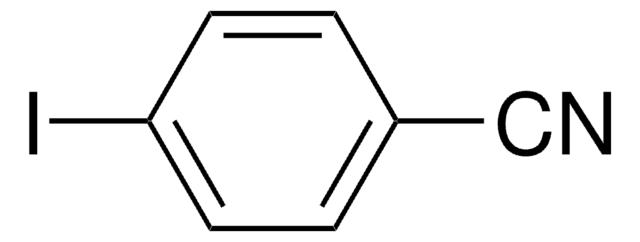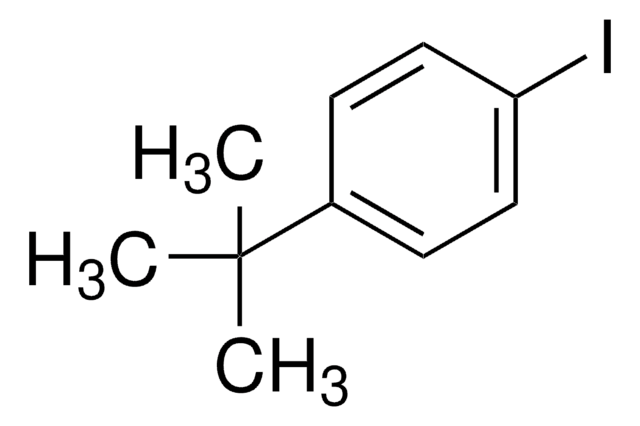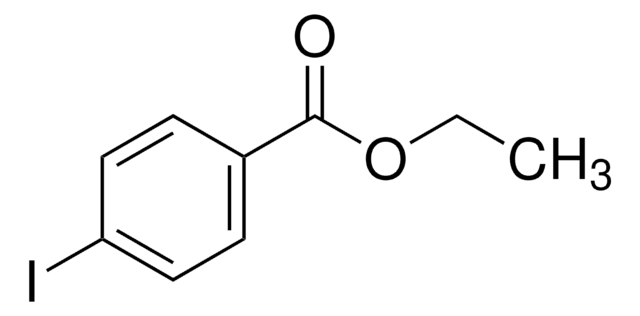All Photos(1)
About This Item
Linear Formula:
FC6H4I
CAS Number:
Molecular Weight:
222.00
EC Number:
MDL number:
UNSPSC Code:
12352100
PubChem Substance ID:
NACRES:
NA.22
Recommended Products
Assay
99%
form
liquid
contains
copper as stabilizer
refractive index
n20/D 1.584 (lit.)
bp
77-78 °C/19 mmHg (lit.)
density
1.89 g/mL at 25 °C (lit.)
functional group
fluoro
iodo
SMILES string
Fc1cccc(I)c1
InChI
1S/C6H4FI/c7-5-2-1-3-6(8)4-5/h1-4H
InChI key
VSKSBSORLCDRHS-UHFFFAOYSA-N
General description
3-Fluoroiodobenzene participates in palladium-catalyzed hydroarylation of arylpropiolamides.
Application
3-Fluoroiodobenzene was used to prepare methyl 4-iodobenzo[b]thiophene-2-carboxylate, key intermediate for the synthesis of 4-substituted benzo[b]thiophene-2-carboxamidines.
Signal Word
Warning
Hazard Statements
Precautionary Statements
Hazard Classifications
Eye Irrit. 2 - Skin Irrit. 2 - STOT SE 3
Target Organs
Respiratory system
Storage Class Code
10 - Combustible liquids
WGK
WGK 3
Flash Point(F)
152.6 °F - closed cup
Flash Point(C)
67 °C - closed cup
Personal Protective Equipment
dust mask type N95 (US), Eyeshields, Gloves
Choose from one of the most recent versions:
Already Own This Product?
Find documentation for the products that you have recently purchased in the Document Library.
Customers Also Viewed
A regio-and stereocontrolled method for preparing 3, 3-diarylacrylamides.
Hay LA and Mitchell D.
Tetrahedron Letters, 38(37), 6533-6536 (1997)
M J Towle et al.
Cancer research, 53(11), 2553-2559 (1993-06-01)
Urokinase-type plasminogen activator (uPA) is an important mediator of cellular invasiveness. Specifically, cell surface receptor-bound uPA activates plasminogen to the potent general protease plasmin, which then degrades extracellular matrix or basement membrane either directly or via proteolytic activation of latent
Our team of scientists has experience in all areas of research including Life Science, Material Science, Chemical Synthesis, Chromatography, Analytical and many others.
Contact Technical Service












